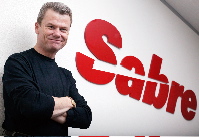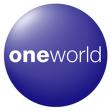Airlines to Scrap Paper Tickets by 2007: Industry Feedback
By Anna Gouldman
 Airlines will no longer print tickets by the end of 2007, in an ongoing effort cut costs and drive efficiency, according to the International Air Transport Association, (IATA).
Airlines will no longer print tickets by the end of 2007, in an ongoing effort cut costs and drive efficiency, according to the International Air Transport Association, (IATA).
At last week’s aerospace forum in Asia, IATA introduced their Simplifying the Business initiative, which focuses on utilising technology to make air travel less costly, more efficient and a better experience for the traveller. BTN spoke to industry experts to gain some insight into this move.Giovanni Bisiani, Director General and CEO of the International Air Transport Association (IATA) revealed: “Global losses of over US$36 billion between 2001 and 2004 make industry change critical,” He went on to state that the rising fuel costs will put a continues strain on the airlines costs, keeping the industry in the red again with US$5.5 billion in losses.
“IATA’s Simplifying the Business initiative focuses on using technology to make air travel less costly, more efficient and a better experience for the traveller. “100% e-ticketing globally by the end of 2007 is at the forefront of this revolution in travel and will save the industry at least US$3 billion annually. Bar coded boarding passes, common use of self-service kiosks for check-in, radio frequency identification (RFID) for baggage management and paperless cargo are all part of the airline vision for a low cost industry,” said Bisignani.
 According to Damian Hickey, SVP Business Development, Datalex, one of the major benefits of the electronic ticketing initiative will be the accelerated implementation of direct distribution of the airline product. This will provide airlines with greater flexibility to distribute to more channels at lower cost. In the past, the added complexity and cost of the fulfilment of paper tickets has presented a significant barrier to the streamlining of distribution solutions for airlines.
According to Damian Hickey, SVP Business Development, Datalex, one of the major benefits of the electronic ticketing initiative will be the accelerated implementation of direct distribution of the airline product. This will provide airlines with greater flexibility to distribute to more channels at lower cost. In the past, the added complexity and cost of the fulfilment of paper tickets has presented a significant barrier to the streamlining of distribution solutions for airlines.
BTN has compiled a list of some of the benefits of e-tickets:
? Reduce document distribution costs
? Accelerated implementation of direct distribution of the airline product
? Eliminate paper-ticket fraud, enhance passenger check-in options
? Stop revenue leakage through automation of check-in and ticket change
Control
? Eliminate lost / stolen tickets
? Eliminate the need for pre-paid tickets
There are clearly numerous benefits of this service, but is 2007 a realistic target for this self-imposed deadline? And what kind of disadvantages will those airlines which have not implemented e-ticketing be exposing themselves to?
 According to Sabre Airline Solutions, there has been an upsurge of interest in the SabreSonic Ticket options since the IATA mandate was announced. Murray Smyth, Vice President EMEA, Sabre Airline Solutions, commented: “The key to being able to meet this timeframe is for airlines to be addressing it now. The sense of urgency is growing but there are a lot of carriers that are delaying the decision making process. The airlines need to realise that they can’t all expect the same eleventh-hour resources to be universally available. For those carriers that have begun to aggressively implement electronic ticketing including interline partnerships the answer is yes, 2007 is a realistic target”.
According to Sabre Airline Solutions, there has been an upsurge of interest in the SabreSonic Ticket options since the IATA mandate was announced. Murray Smyth, Vice President EMEA, Sabre Airline Solutions, commented: “The key to being able to meet this timeframe is for airlines to be addressing it now. The sense of urgency is growing but there are a lot of carriers that are delaying the decision making process. The airlines need to realise that they can’t all expect the same eleventh-hour resources to be universally available. For those carriers that have begun to aggressively implement electronic ticketing including interline partnerships the answer is yes, 2007 is a realistic target”.
Over 100 airlines use SabreSonic, including American Ailines, Gulf Air, Malaysia Airlines, Aeroflot and Air New Zealand. Over 40 airlines use the eticketing capability and 22 airlines are connected to interline partners through the SabreSonic? Ticket IET Hub.
ADVERTISEMENT
“Interline electronic ticketing is another step American has taken to enhance the travelling experience by making passenger transfers from American to other airlines more convenient,” said Uzair Nathani, managing director Revenue and Planning Technology at American Airlines. “American Airlines continues to make investments in customer-facing technology to enhance the travel experience, as well as look for all opportunities to lower costs and work more efficiently. Sabre’s eticketing hub enables us to provide our customers, in a faster and more cost effective fashion, the enhanced convenience and flexibility they want.”
Kevin Hartigan-go, vice president of information systems at Philippine Airlines commented. “We want to achieve the cost savings of moving to a paperless process, but do not want to have to build and host a separate system to do so, nor desire to change our current reservations system. The component approach of SabreSonic Ticket provides the flexibility to do exactly what we want and when we want to move to a paperless environment while adding another positive customer service element as well.”
 According to Richard Stokes, Senior Vice President, Passenger and Travel Solutions, SITA INC., those airlines not adapting to e-ticketing by the end of 2007 risk a number of serious disadvantages. He went on to elaborate: “They will not be able to sell through key third-party e-commerce providers (such as Expedia and Travelocity), they will be at a competitive disadvantage as a result of the continued high costs associated with paper tickets and settlement, and they will be more exposed to paper ticket fraud”
According to Richard Stokes, Senior Vice President, Passenger and Travel Solutions, SITA INC., those airlines not adapting to e-ticketing by the end of 2007 risk a number of serious disadvantages. He went on to elaborate: “They will not be able to sell through key third-party e-commerce providers (such as Expedia and Travelocity), they will be at a competitive disadvantage as a result of the continued high costs associated with paper tickets and settlement, and they will be more exposed to paper ticket fraud”
SITA
have been actively working to overcome technical barriers to facilitate e-ticketing and other technologies. He added: “With the introduction of SITA Smart Ticket, we’re offering a new approach that will be phased in over the next year. It will allow any airline to do electronically what it does with paper today. We think it’s a major contribution towards achieving the IATA objective of ridding the industry of paper tickets by 2007.”
Datalex
is currently working with Aer Lingus to extend interline e-ticketing to its fellow members within the OneWorld airline alliance. OneWorld recently announced that it will be the first global airline alliance to complete the roll-out of interline e-ticketing between all of its members. Other e-ticketing projects undertaken by Datalex include implementations for KLM and Turkish Airlines.
 oneworld is certainly ahead of the game as the first of the alliances to implement full interline e-ticketing between all member airlines this month.
oneworld is certainly ahead of the game as the first of the alliances to implement full interline e-ticketing between all member airlines this month.
A new group, to be led by oneworld Vice-President IT Bob McNair, was commissioned by the Chief Information Officers from all of the group’s airlines, meeting for their first oneworld IT summit of the year, hosted by Qantas Airways in Sydney.
One of the main focus areas for the meeting was to develop alliance strategies towards the four “industry simplification areas” being rolled out by IATA. Besides bar-codes on boarding passes, these include:
* Global e-ticketing with interline e-ticketing in place between all oneworld members, when the final three pairs of partners link up next month - almost three years ahead of the IATA target.
* Common-use self-service check-in kiosks.
* Radio frequency technology for baggage sorting and handling.
* The new bar-code team will work along similar lines to the interline e-ticketing project, reviewing the status of all relevant programmes in each airlines before working towards a common standard for development.
As part of their review of the IT elements of oneworld’s 2005 alliance business plan, the CIOs also reviewed how web-based technology could be adapted for the PNR Servicing project, which aims to make it easier for frontline staff from one airline to help customers from another carrier by providing them with direct access to the customer’s PNR.
 oneworld Vice-President IT Bob McNair, said: “The potential of this application is very exciting as it demonstrates how we can use tools and functions that already exist on our partner websites to deliver alliance value at a low cost and with minimal resource investment. The current application has the potential to be expanded in the future to provide further alliance functionality.”
oneworld Vice-President IT Bob McNair, said: “The potential of this application is very exciting as it demonstrates how we can use tools and functions that already exist on our partner websites to deliver alliance value at a low cost and with minimal resource investment. The current application has the potential to be expanded in the future to provide further alliance functionality.”
According to Catherine Mayer, Vice President, Airport Services, SITA INC:
“The Simplifying the Business initiatives represent a huge step in the
right direction, and provide due recognition of the benefits that
community-driven systems and processes can deliver to both the airlines and
the travelling public. SITA has worked with IATA and the industry to
develop the simple and flexible community open platform CUSS standard”
“Common use self-service (CUSS) kiosks have become an integral part of the
travel process as they offer benefits to passengers, airlines and airport
operators. Passengers are embracing the kiosks as they offer a quick and
simple check-in - the whole process can take place in as little as 30
seconds. The airlines are reducing passenger-handling cost whilst
increasing customer satisfaction and airport operators are saving valuable
space and reducing congestion - these benefits have fuelled the increased
demand that we have seen in recent years”
“SITA was the first company to launch an IATA-compliant self-service kiosk
for both dedicated and common use. Today there are more than 1,800 SITA
AirportConnect kiosks deployed at over 100 airports worldwide. They provide
customer-friendly access to the check-in systems of single or multiple
airlines using different hosts. The next step will be self service baggage
check in which SITA is already piloting with Aeroport de Montreal. And of
course the kiosk can also provide access to other airport systems,
including flight information, origin and destination information,
advertisements and more.”
——-

